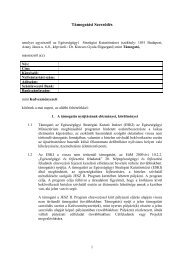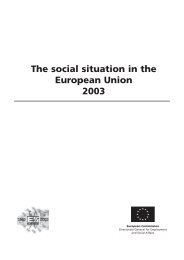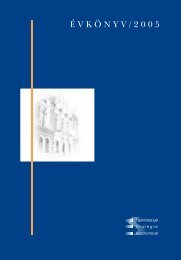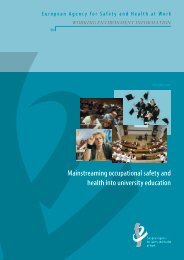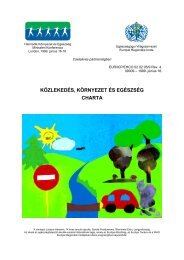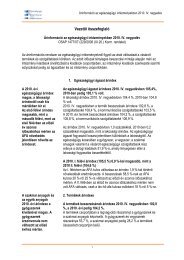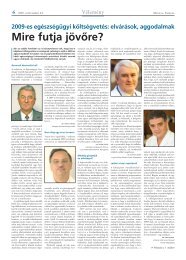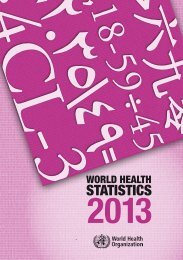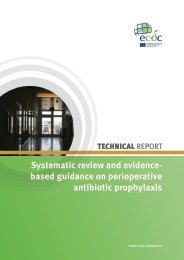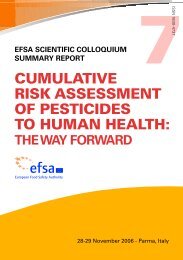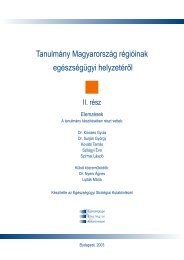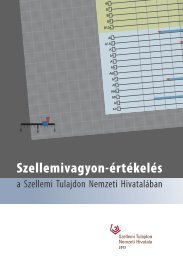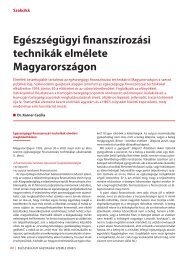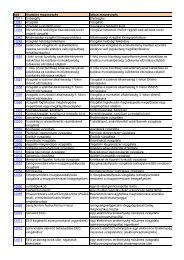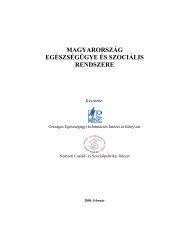WHO Technical Report Series, No. 981 - World Health Organization
WHO Technical Report Series, No. 981 - World Health Organization
WHO Technical Report Series, No. 981 - World Health Organization
You also want an ePaper? Increase the reach of your titles
YUMPU automatically turns print PDFs into web optimized ePapers that Google loves.
<strong>WHO</strong> Expert Committee on Specifications for Pharmaceutical Preparations Forty-seventh report<br />
Table continued<br />
Documentation required<br />
6. (S.2.3) Either a TSE CEP for any new source of material or, where applicable,<br />
documented evidence that the specific source of the material that carries a risk of<br />
TSE has previously been assessed by the competent authority and shown to comply<br />
with the current <strong>WHO</strong> guidelines on transmissible spongiform encephalopathies in<br />
relation to biological and pharmaceutical products (www.who.int/biologicals) or<br />
EMA’s <strong>No</strong>te for guidance on minimizing the risk of transmitting animal spongiform<br />
encephalopathy agents via human and veterinary medicinal products (www.<br />
emea.europa.eu/ema) or equivalent guidelines of the ICH region and associated<br />
countries.<br />
7. (S.2.4) Information on controls of critical steps and intermediates, where applicable.<br />
8. (S.2.5) Evidence of process validation and/or evaluation studies for sterilization, if<br />
applicable.<br />
9. (S.3.1) Evidence for elucidation of structure, where applicable.<br />
10. (S.3.2) Information on impurities.<br />
11. (S.4.1) A copy of currently accepted specifications of API (and starting material and<br />
intermediate, if applicable).<br />
12. (S.4.4) Description of the batches, certificates of analysis or batch analysis report,<br />
and summary of results, in a comparative tabular format, for at least two batches<br />
(minimum pilot-scale) manufactured according to the current and proposed<br />
processes.<br />
13. (S.7.1) Results of two batches of at least pilot-scale with a minimum of three months<br />
of accelerated (and intermediate as appropriate) and three months of long-term<br />
testing of the proposed API.<br />
14. For low-solubility APIs where the polymorphic form has changed or whenever<br />
particle size is critical (including low-solubility APIs) where there is dissimilar particle<br />
size distribution compared to the lot used in the biobatch, evidence that the<br />
differences do not impact the quality and bioavailability of the FPP.<br />
<strong>WHO</strong> <strong>Technical</strong> <strong>Report</strong> <strong>Series</strong> <strong>No</strong>. <strong>981</strong>, 2013<br />
114<br />
Description of change<br />
Conditions to<br />
be fulfilled<br />
Documentation<br />
required<br />
<strong>Report</strong>ing<br />
type<br />
11 Change in the in-process tests or limits applied during the manufacture of<br />
the API:<br />
11a<br />
11b<br />
11c<br />
any change in the<br />
manufacturing process<br />
controls<br />
tightening of in-process<br />
limits<br />
addition of a new inprocess<br />
test and limit<br />
1 <strong>No</strong> variation is required;<br />
such changes are handled as<br />
amendments to the APIMF by<br />
the APIMF holder<br />
2–4 1 AN<br />
2, 5 1–5 AN<br />
continues



